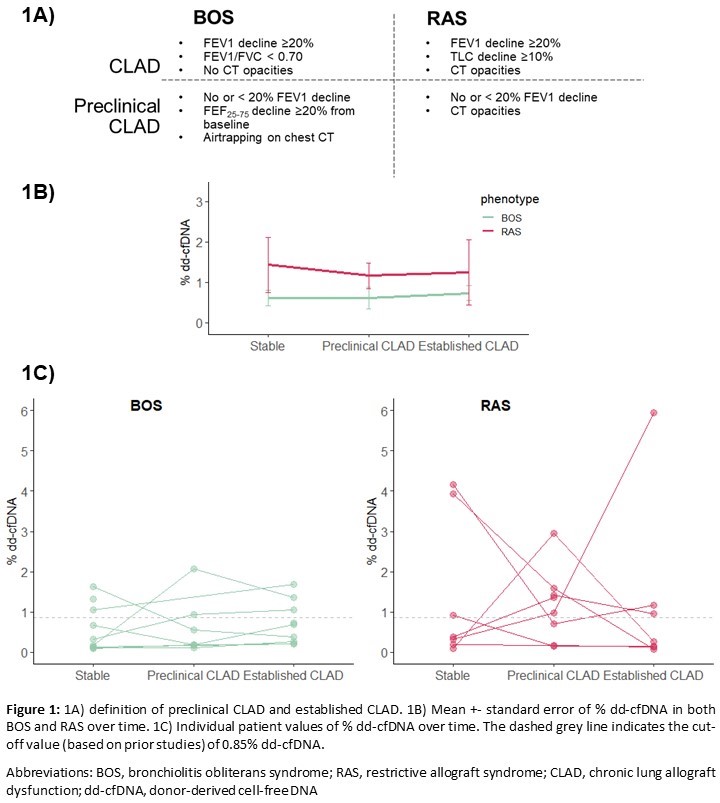Abstract
Background and Aim
Donor-derived cell-free DNA (dd-cfDNA) is a marker for acute allograft injury in lung transplant recipients. However, little is known about dd-cfDNA in chronic lung allograft injury. Therefore, our goal was to serially assess dd-cfDNA in patients evolving towards chronic lung allograft dysfunction (CLAD).
Methods
Plasma samples from BOS (n=10) and RAS (n=8) patients were obtained at 3 consecutive clinical conditions during post-transplant follow-up: (1) stable allograft function, (2) preclinical CLAD, (3) established CLAD (Figure 1A). Samples with concurrent infection or acute rejection were excluded. Following cfDNA extraction, the AlloSeq cfDNA assay (CareDx, USA) was used to quantify % dd-cfDNA levels.
Results
48/53 included samples passed quality standards for AlloSeq cfDNA assay. % dd-cfDNA levels were elevated in RAS compared to BOS over the 3 timepoints, although this did not reach statistical significance (p=0.077) due to limitations in sample size. % dd-cfDNA levels did not change significantly over the CLAD spectrum, and individual levels were highly variable. Individual % dd-cfDNA levels per patient, as well as mean values in BOS and RAS over time are depicted in Figure 1B and C.
Conclusion
Plasma dd-cfDNA may be a useful tool for the assessment of lung allograft health, however, further research is needed to eludicate the heterogeneity in dd-cfDNA levels not explained by the clinical CLAD spectrum.
